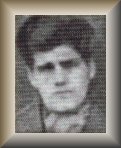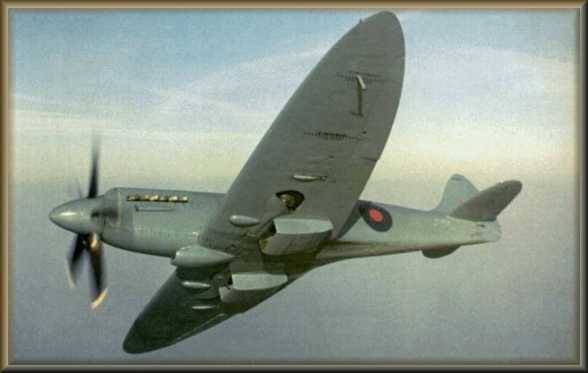Archives et notes de mes recherches concernant cette date et victoire
Spitfire Mk IV Serial AA810

éxecuté le 4 juin 1944 après "la grande évasion" du camp de prisonniers de Sagan.
Numéro de série
Type / Nom
Squadron
Code
Date
Raison
Mission / Point de chute
pilote / équipage
AA810
PR Mk IV
1 PRU
LY ?
5 mars 1942
Me 109
Trondheim
Gunn
N° du chassis 2203, moteur Merlin 45, sorti d'usine le 17 octobre 1941 et affecté au 1 PRU le 19 octobre 1941.
Recherches concernant cette victoire :
Spitfire déclaré perdu le 05/03/1942 :
Message from Henk Welting "Heinz Knoke first victories" Thu Jan 13 05:58:32 2000Spitfire 5-3-42 must have been AA810 of 1 PRU. F/Lt A.D.M. GUNN PoW but executed 6-4-44
after the 'Great Escape' from Sagan PoW-camp. I have no crashlocation. Do you ??
Regards from Holland - Henk.Ma réponse :
Mission for spitfire was photo reconnaissance on Trondhjem Fjord with german cruisers scharnhorst
and Prinz Eugen. Crashlocation is in Norway probably near Trondhjem.
Message from Pierre Renier "Loss of 1PRU Spit" Mon Feb 7 01:10:32 2000Le 5 mars 1942 l'ORB du 1PRU rapporte que le Pilot Officer Gunn décolla de l'aérodrome de Wick à 08h07, pilotant le Spitfire AA810, son objectif étant Trondheim, et qu'il fut porté manquant.
Hope the A/c serial helps in tracing a photo of the aircraft.
Message from Pierre Renier "Source of PRU info" Mon Feb 7 23:36:46 2000I've been researching over two years the PR cover of the Channel Islands. To aid my research I have purchased from the Public Record Office, Kew, London, a number of Squadron/Unit ORB's on 35mm microfilm. This has helped greatly, especially with follow up research at Keele University, in the Midlands where the vast majority of the Allied PR cover of western Europe is now held. They actually hold over 5 million prints, is well worth a visit, and I have spent many happy hours there.
The 1PRU ORB's are in record AIR 29/413 through 514, and cover 9/39 to 10/42. On Microfilm Diazo cost GBP56 inc P&P.
Source site web : The great EscapeExtrait de la liste des cinquantes victimes des représailles de la Gestapo :
60340 F/L Alastair D M Gunn, British, born 27-Sep-19, 1 PRU, PoW 5-Mar-42, recaptured near
Gorlitz, last seen alive 6-Apr-44, murdered by unknown Gestapo, cremated at Breslau.Dieter GERHARD et Heinz KNOKE qui avaient passé la soirée du 5 mars 1942 autour d'une bouteille en compagnie de Alastair D M GUNN, n'ont certainement jamais connu son triste sort...
Informations :
Supermarine Spitfire Mk. IVA variant of the Mk.V was numbered the Mk.IV it was a MkV turned into a photo-reconnaissance aircraft.
The guns were removed and additional fuel tanks were installed in the wings. Cameras were installed
in the rear of the fuselage, the wings were lengthened with rounded tips and the cockpit was pressurised.A total of 229 Mk. IV versions were produced for photo-reconnaissance.

1941After Coastal Command had taken control of the Photographic Reconnaissance Unit, Bomber Command decided it needed one of its own. Consequently, No 2 PRU was formed at Oakington under the command of 3 Group. Six Spitfire Mk ICs were used to photograph areas before bombing raids, in order that targets could be properly marked. The Spitfires then re-photographed the areas after the raid so that the damage could be assessed.
1942 The Photographic Reconnaissance Unit was split into four squadrons in October. Nos 541, 542 and 543 were fully equipped with Spitfire Mk IVs, while 544 Squadron had other types as well as some Mk IVs.
History of No. 39 (1 Photographic Reconnaissance Unit) Squadron.Number 39 (1 Photographic Reconnaissance Unit) Squadron, to give the unit its correct title, is, in essence, an amalgamation of two famous RFC/RAF squadrons : Number 39 Squadron and Number 1 Photographic Reconnaissance Unit (PRU) was formed at Heston Airport in September 1939 originally under civilian control. In the first four months of the War, some 5,000 square miles of enemy territory with a single Spitfire were photographed. The RAF, by comparison, had covered 2,500 square miles for the loss of 40 aircraft. In the summer of 1940, it was established on a regular RAF footing and shortly after began a year-long watch on the German battle cruisers Gneisenau and Scharnhorst harboured in Brest. During this time seven pilots from the Unit were lost - the highly modified Spitfires they flew were unarmed in an effort to keep the aircraft's weight to a minimum and obtain the highest possible altitude. In May 1941, aircraft of No 1 PRU spotted the German battleship Bismarck attempting to break into the North Atlantic, thus starting the epic hunt that led to its sinking. Other notable feats achieved by the Unit include the first sighting of the German cruiser Admiral Hipper in dry dock at Brest and photographs of the German radar station at Bruneval that led to the famous Commando raid of 1942. In October 1942, No 1 PRU was broken up to form a famous series of RAF PR Squadrons.

Source : Aéro Journal N°13 Article "Souriez vous êtes fimés !"Un intéressant article est paru dans cette revue concernant les PRU. Il s'agit du récit d'un pilote de reconnaissance, Wing Commander Roy Buchanan, ayant été affecté au 1 PRU en avril 1942. De nombreuses photos de qualité illustrent cet article et de superbes profils laissent entrevoir les couleurs potentielles des Spitfires du 1 PRU à l'époque.
